Healthcare workers play a crucial role in helping sick or injured people. Without them, the healthcare system would come to a standstill. Healthcare workers may have different roles and responsibilities depending on their job, but they all share the same goal: to help others get better. If you’re interested in working in this field, you’ll need to put your best foot forward with your resume and cover letter. To land an interview for these jobs, your resume should highlight any relevant work experience, education, volunteer work, or personal interests that could set you apart from other applicants. A well-written resume is your first opportunity to sell yourself as the perfect candidate for a given job. It has to showcase your abilities and strengths while revealing why you’re the ideal person for that specific role. Now that you understand how essential it is to create an excellent healthcare resume and cover letter, we’ve got some good news! This blog post includes a sample healthcare resume template with step-by-step guidance on what to include and avoid when creating yours.
Healthcare Resume Example

Download This Healthcare Resume as PDF
Pharmacist Resume Example
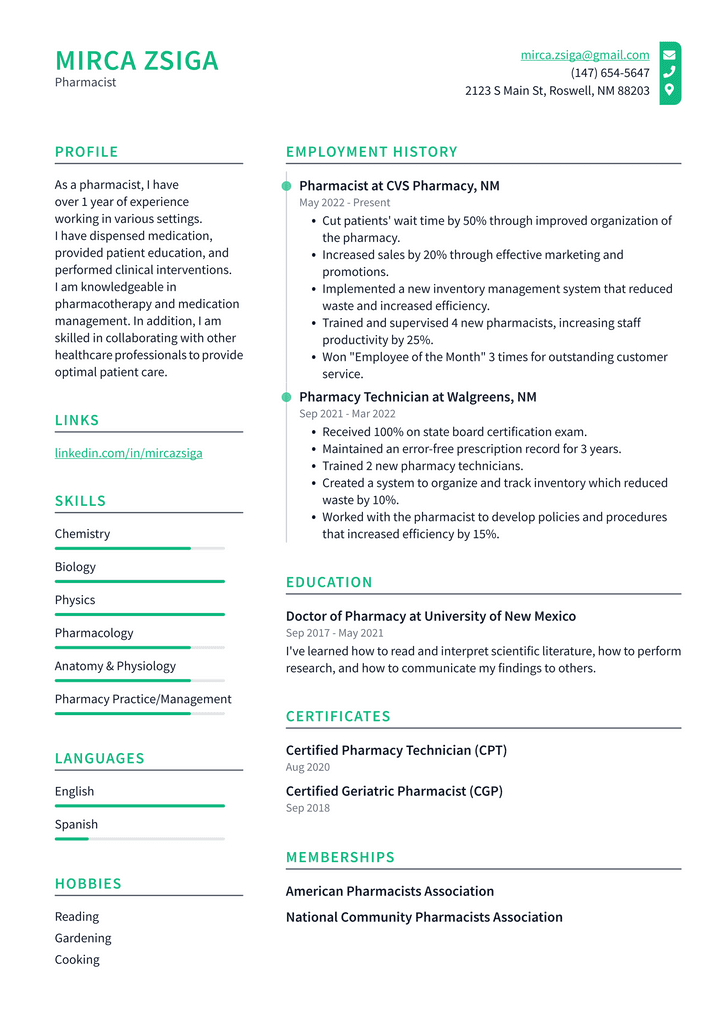
Download This Pharmacist Resume as PDF
Surgeon Resume Example
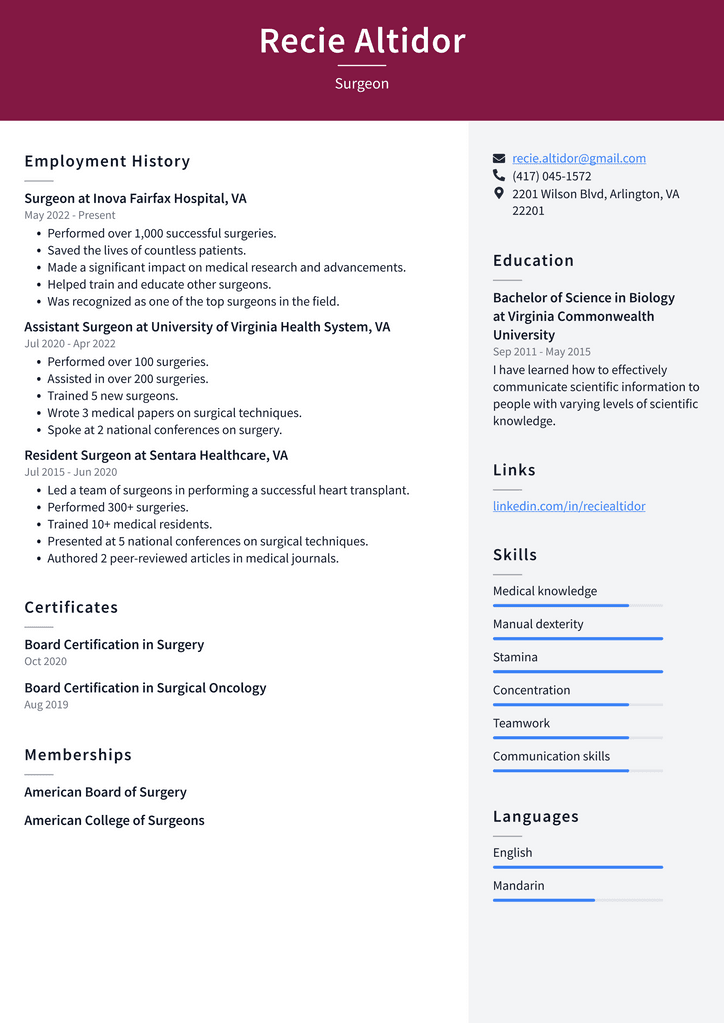
Download This Surgeon Resume as PDF
Nurse Resume Example
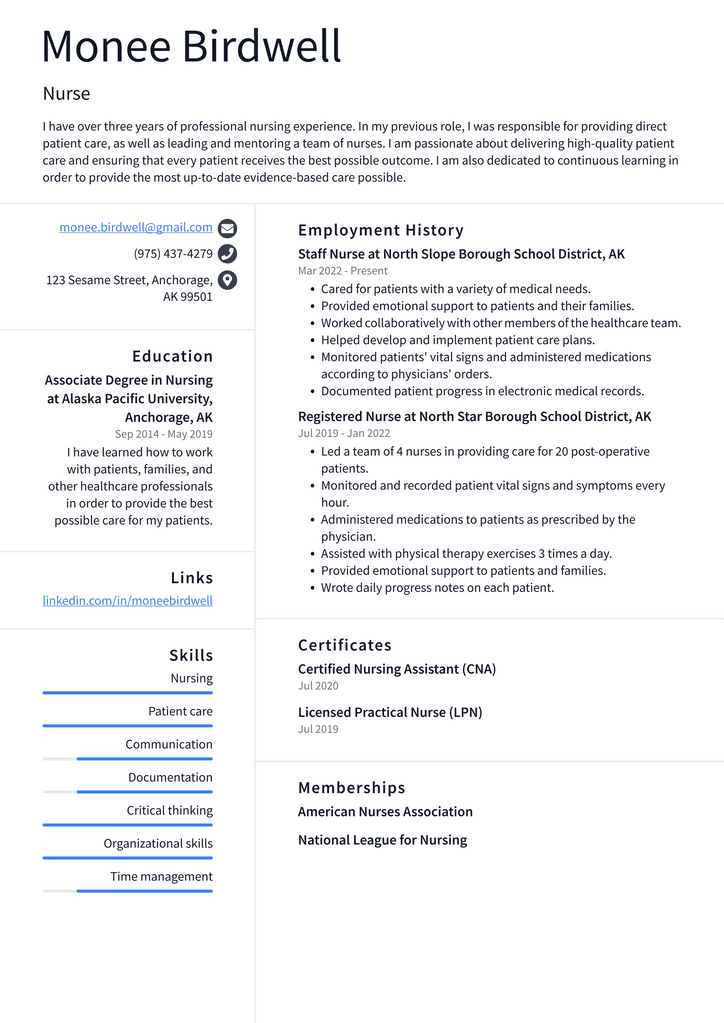
Download This Nurse Resume as PDF
Psychiatrist Resume Example
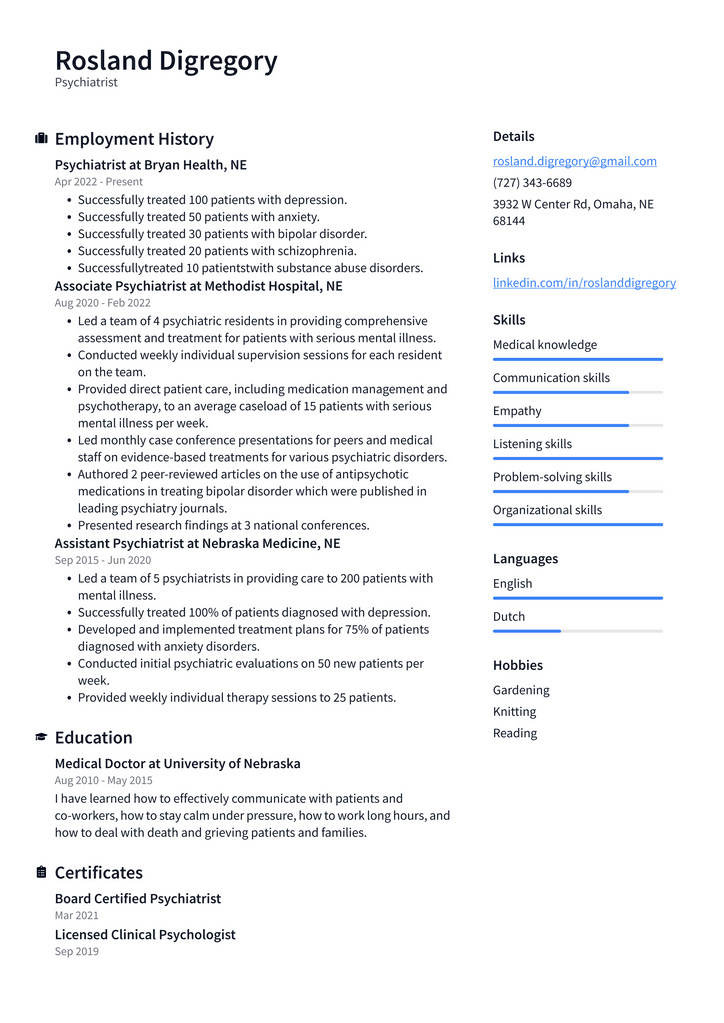
Download This Psychiatrist Resume as PDF
Physician Resume Example
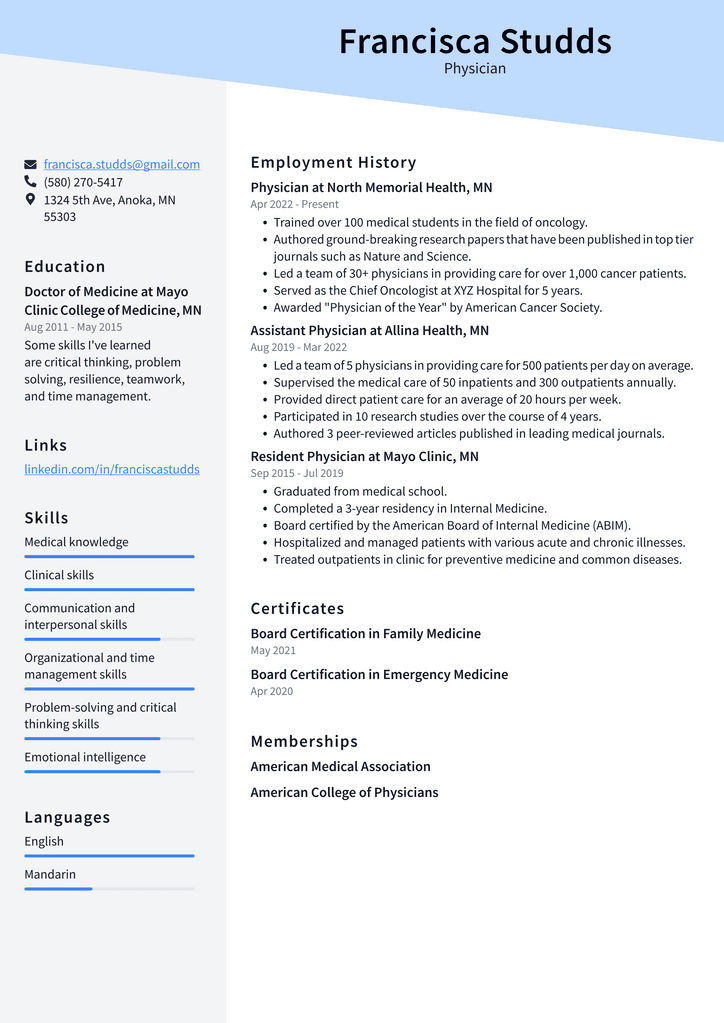
Download This Physician Resume as PDF
Physical Therapist Resume Example
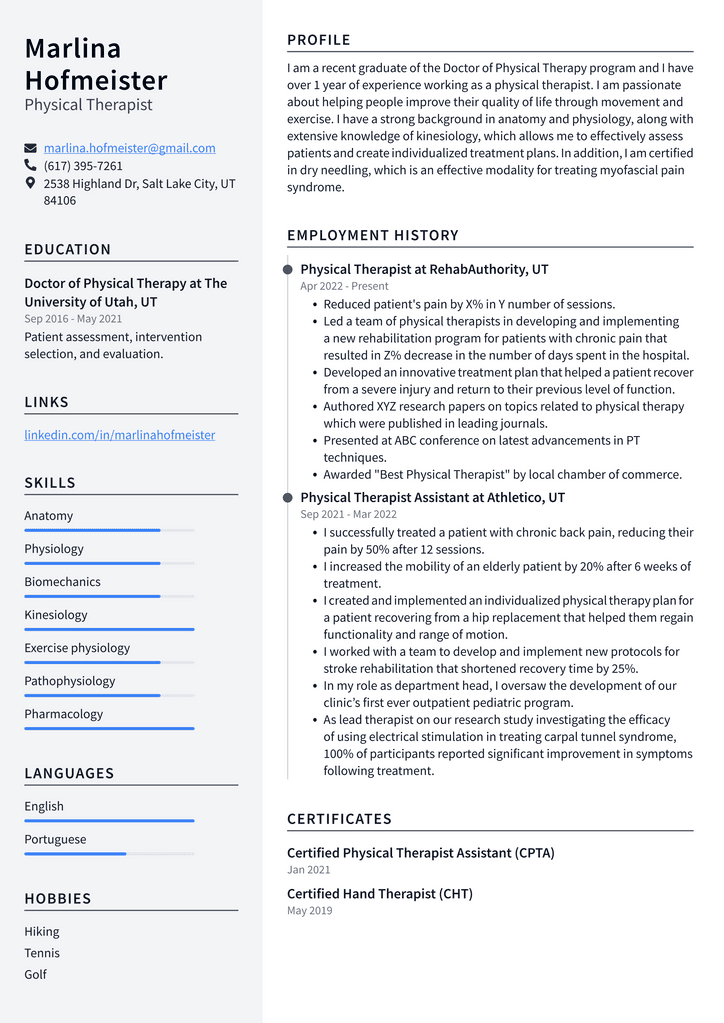
Download This Physical Therapist Resume as PDF
Key Points to Include in a Healthcare Resume
Many key points to include in a healthcare resume include experience, skills, certifications, education, associations, and awards. If you have volunteer work experience and paid work, it’s best to include both. Experience: Start with a clear and concise summary of your work experience. Include your current or most recent job first, followed by your other employment history. If you have gaps in your employment history, you can fill them in by including an “Interests and Activities” section or by including the number of years since you were last employed. There are two ways to list your job experience: You can either list your jobs in chronological order or list them based on the type of work you did. It’s best to list your jobs chronologically to give the reader a clear picture of your work history, how long you’ve been working, and where you’ve worked. Skills: Skills are the abilities that are transferable from one job to the next; they are not always related to the specific duties you perform at your job. For example, if you were a Registered Nurse at your last job, nursing skills are transferable to another job. If you don’t have any experience, you can still list skills acquired through education or special training. Certifications: Include any relevant certificates or licenses that apply to your field of work. Instruction: Start with your most recent education, followed by your other education. Associations and Awards: Include any relevant associations or awards that apply to your field of work.
The Basics: Education and Work Experience
Education: List your most recent education first, followed by your other education. Include the school name, degree, dates attended/completed, and any major or minor subjects.
Work Experience: Start with your most recent job, followed by your other employment history. List the job title, employer’s name, the dates you were employed, and any accomplishments you achieved while working there.
Showcasing Your Skills and Strengths
Skills and strengths are transferable skills and traits you demonstrate on the job. There are many skills and strengths that healthcare workers use on the job and in their everyday lives. Communication: Communication is a two-way process between healthcare professionals, their patients, co-workers, and supervisors. Critical Thinking and Problem Solving: Critical thinking and problem-solving are essential skills that healthcare workers use to solve problems and make sound decisions. Organization and Planning: Organization and planning are crucial skills that healthcare workers use to organize their day-to-day activities. Teamwork: Healthcare is a team effort and requires healthcare workers to work with their peers on patient care and treatment.
Resume Tips for Healthcare Professionals
Keep your experience, skills, certifications, and education concise and relevant to the job you’re applying for. Be specific and concise when listing your job duties, accomplishments, and special skills. Highlight any volunteer work experience and include it on your resume. Proofread your resume several times and have someone else proofread it as well. Keep your resume to one page. If you can’t fit all the information on one page, consider having a shorter cover letter and bulleted points for your work experience, skills, and education.
Final Words: Conclusion
A healthcare resume is a powerful marketing tool that you can use to highlight your skills, abilities, and strengths to secure a job in the healthcare industry. Tailoring your resume to each job you apply for by highlighting your experience, skills, certifications, education, and other relevant information is essential. When writing your healthcare resume, make sure it’s concise and relevant to the job you want. Your healthcare resume is the first impression an employer will get of you. By following these tips for writing a successful healthcare resume, ensure it’s a good one.